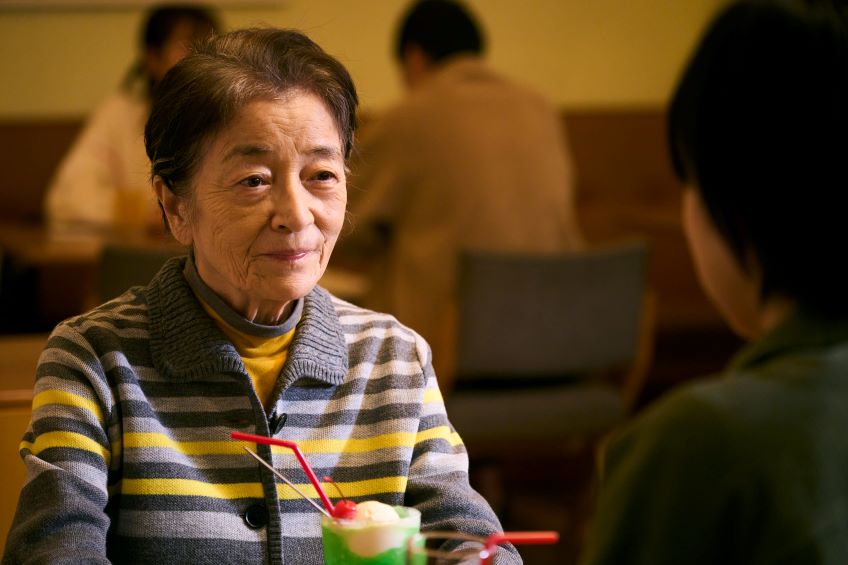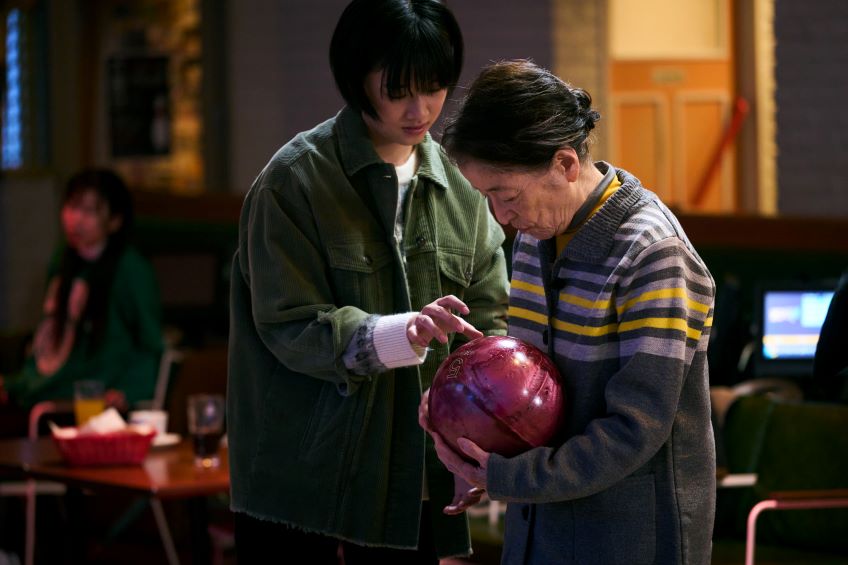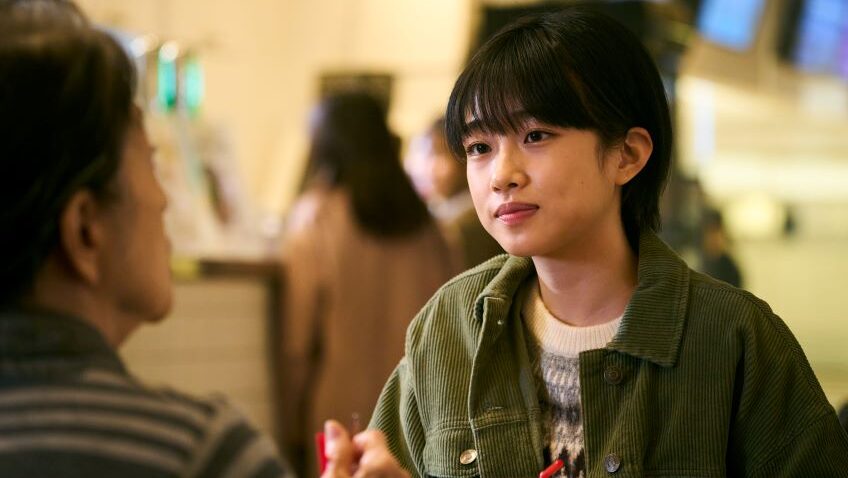Joyce Glasser reviews Plan 75 (May 12, 2023) Cert 15, 113 mins. In Cinemas & On Curzon Home Cinema
First time director and co-writer Chie Hayakawa has seized upon the best premise of the year, a notion lingering like a malignant drone over the surplus-to-requirement generation even before Covid helped eradicate this burdensome population. Plan 75 is beautifully acted, with a meditative, melancholy tone, and the message comes across in an empathetic, totally sincere and occasionally chilling style that merges social realism with a touch of Sci-Fi. What it lacks is the power and promise of the first scene, in which we hear of Japan’s proud history of self-sacrifice as a faceless, gunman puts a gun to his head to applause from music on Radio Japan. Off camera, the man has just assassinated the residents of a care home.
That the killer hadn’t shot the radio is the only irony in this film that plays it straight. “The off-camera” sound bite that “the surplus of seniors is draining the country” and that “seniors don’t want to be a burden on society” is not only the killer’s justification, but the Japanese government’s rationale in coming up with a more human solution in its eponymous Plan 75.
The government is spending heavily on the Plan. The advertising includes radio (Radio Japan breaks the news that the controversial plan has passed), TV and print, including huge posters and small brochures that explain the detail. Then there’s real infrastructure and operational costs such as enticement payments of $1,000 – the cost of a modest private cremation. Group cremations are free.

Then there are the personnel costs, including civil servants signing people up, specially trained call centre voices to ensure no one drops out of the voluntary programme; technicians and staff in the collective dying centres who inject the medicine and sort out the earthly remains. The cremations are rather haphazard.
We meet some of the personnel involved, chief among them, Hiromu (Hayato Isomura) a polite, quiet, handsome young civil servant whose job is to sign up older people. His dispassionate but empathetic approach changes suddenly when he recognises one of his clients as his estranged uncle Yukio (Takao Taka), a widower and a skilled former structural engineer who lives in abject poverty. Although Hiromu is forced to recuse himself (workers are warned not to get attached to the clients) he breaks the rules and tries to save his uncle. Hiromu’s tempestuous father recently
died and his mother remarried. Hiromu reaches out to this docile lost relative who became estranged from his brother for reasons Hiromu now understands.
We also follow the trajectory of Michi (Baishô Chieko), who, at 78, has just been made redundant from her job as a hotel housekeeper and is facing eviction from her small flat. She applies for jobs without success and we finally see her in a high-vis vest directing traffic at night in the rain. When a real estate agent suggests she applies for a welfare flat Michi replies that she is not ready for that option yet. You can feel your heartstrings being pulled. Michi thinks her friends with family are better off but learns that not all families are caring.
Then Michi is thrown a lifeline care of the Plan. Ineko (Ohkata Hisako) is her phone companion whose job it is to “make her journey as pleasant as possible” and, although Michi does not know this, make sure she does not leave the plan. Michi becomes dependent on these calls of fifteen minutes a week, because Ineko listens.
Then one night they meet at a bowling alley where Michi used to go with her second husband for ice-cream sodas, which she orders. Ineko is risking her job, but the two establish a rapport. Michi tells Ineko about her arranged and abusive first marriage, and her baby who died at birth. In a moment of tenderness, Michi gives Ineko – who tries to refuse it – the $1,000, telling her she has no one else to leave it to. Ineko suggests Michi try bowling and when Michi scores a strike, Ineko and all her friends surround her to cheer. It is a happy moment for Michi and maybe it is the memory lingering as she swallows the pill for nausea and lays down to die next to Yukio.

We also follow the trajectory of Maria (Stefanie Arianne) a Filipino nurse and young mother whose husband is back home with their five year old daughter Ruby in need of an expensive operation. Ruby too is getting shots and Maria is proud of her daughter’s bravery. Maria, who works in a care home, is tipped off that there is a higher paying job working for Plan 75 in the dying centre. One of her jobs is to collect and sort out the earthly remains of the departed without families. Her older Japanese colleague looks the other way when a handbag yields a real find.
Chie Hayakawa (and co-writer Jason Gray) do the hard work setting up the logistics of exactly how Plan 75 would work and even imagining the off-shoot businesses profiting from it. But they have none of the fun of exploiting the premise, and neither does the audience, plunged into a world of miserabilism for young and old.
What we do not hear about is the international outcry or the rebellious seniors. Or the rich seniors. The people we meet, young and old, are hard working, but poor. Both Yukio and Michi are likely clients united by their loneliness and poverty, but both are able to contribute to society (Michi was a teacher), if society would give them jobs. They feel unwanted more than burdensome.
Curiously, Hayakawa seems to be scoring an own goal by showing us how compassionate the younger generation is. Of course, Michi encounters the cold reality of finding employment and a rental in a large city, but with the exception of the deranged killer in the epilogue, the only targeted displays of resentment or bitterness are aimed not at the elderly but at Plan 75, as we notice when someone throws objects at a Plan 75 poster.
There will surely be an English or French language version. If American, there will be a lot of action, with elderly people (imagine old Arnold Schwarzenegger) using their wisdom and experience to elude the assault-rifle-crazy kids (taking time off from killing children and teachers). Or we might get a very dark comedy revisiting Arsenic and Old Lace in a 2050 Sci-Fi setting. If British, we can hope for a stinging political satire written by Armando Iannucci, and if French, it will be the sharp François Ozon expanding upon his brilliant euthanasia comedy/drama, Everything Went Fine.




